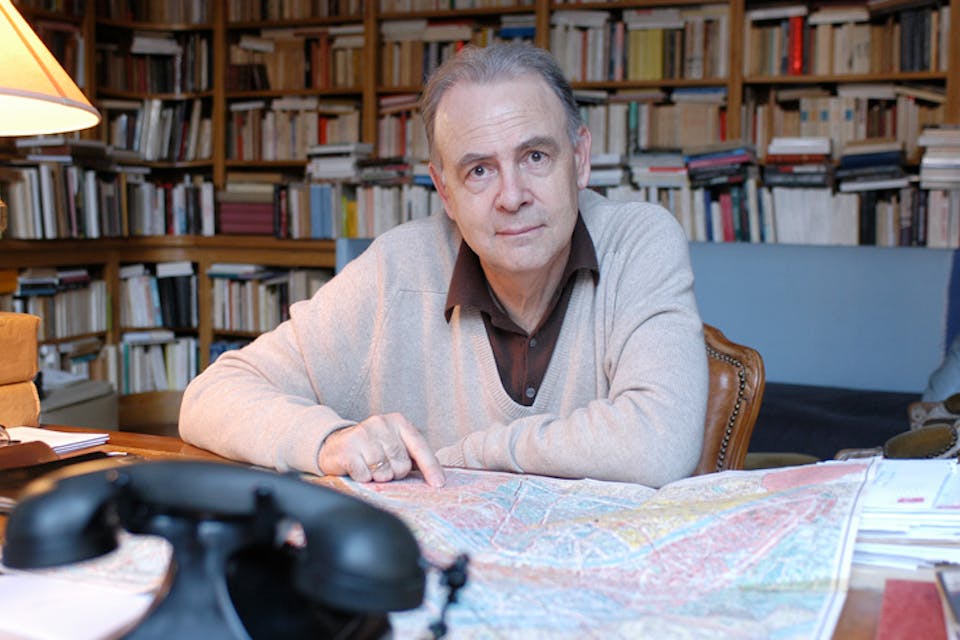
December 17, 2014
Patrick Modiano’s (Jewish?) Sorrow
Is the 2014 Nobel Prize-winner's work really driven by the legacy of the Holocaust in France? Or is it more personal?
In awarding the 2014 Nobel Prize for literature to Patrick Modiano, a French novelist whose father was Jewish, did the Swedish Academy intend some kind of comment on the ongoing eruption of violent anti-Semitism on the streets of Paris and other European cities this year? It’s tempting to think so. But if there was a political gesture here, it was an ambivalent one, and one that only reinforces a longstanding European prejudice: esteem for the safely dead Jews of the Holocaust—Modiano writes about the wartime occupation of France by the Nazis—coupled with disregard for if not hostility toward contemporary Jewish life, about which he doesn’t write at all.
Critics in France and elsewhere have groused that Modiano is not an author of Nobel stature. But with such recent winners as Tomas Tranströmer, Elfriede Jellinek, and Harold Pinter, how high has the bar been set? Certainly, the best of Modiano’s work is well worth reading, and any assessment of that work should reckon with his idiosyncratic relationship to the twin themes of Jewish identity and the legacy of the French past.
The novel that launched Modiano’s career at the age of twenty-three was La Place de l’Étoile (1968). Set during the German occupation of Paris, this dark, carnivalesque satire offers an intentionally grotesque compendium of anti-Semitic motifs in French literature from Drumont to Céline. All pertain to the novel’s antihero, one Raphael Schlemilovitch, whose outsized vices would make a mockery of Jew-hatred were anti-Semites capable of being embarrassed by their own absurdities. The book was inspired in part by the experience of Modiano’s father, who survived as a black marketeer during the war, staying one step ahead of French police raids and dealing at times with the Gestapo. (Modiano’s parents—his mother was Flemish—met in 1942, and Modiano was born three years later.)